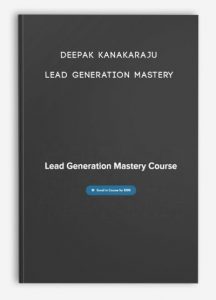
Deepak Kanakaraju – Lead Generation Mastery
Description:
Deepak Kanakaraju is a digital marketing author, speaker, and consultant. He blogs about digital marketing at http://DigitalDeepak.com and heads digital marketing at Razorpay.com.
He has previously worked in well-known B2B and B2C startups such as Exotel, Practo & Instamojo. Before that, he founded a publishing startup called BikeAdvice.in and had an exit.
He has invested over a million dollars in digital advertising through the course of his career. He has extensive experience in all the major digital marketing channels such as Search Engine marketing, SEO, Display Marketing and Integrated Digital Marketing.
Course Curriculum
Module 1 – Introduction to Lead Generation
Welcome to the Lead Generation Mastery Course (2:19)
What’s a Lead? (8:37)
When do we need lead generation? (20:29)
The Ethics of Lead Generation (8:05)
Probability Theory in Lead Generation (16:51)
Module 2 – B2B Lead Generation
Introduction to B2B Lead Generation (4:06)
PreviewSnov.io – B2B Email Finder Tool (17:41)
PreviewGetProspect.io – Generate Leads from LinkedIn (11:57)
PreviewFindThatLead – Generate B2B Leads in Bulk (10:55)
RocketReach – B2B Lead Generation
Lusha – B2B Leads with Phone Numbers
PreviewMailShake – Send Outreach Emails via Gsuite (16:16)
Woodpecker – B2B Email Outreach Tool (8:18)
Klenty – B2B Email Outreach Tool
Module 3 – B2C Lead Generation & Funnels
Introduction to B2C Lead Generation (11:43)
The Inbound Marketing Funnel (CATT) (14:02)
(C) Content – Creating Lead Magnets (12:01)
(A) Attention – Driving Attention to Your Content (32:28)
(T) Trust – Building Trust with Your Audience (33:21)
(T) Transaction – Converting Leads into Customers (22:56)
Self Help – Lifestyle online course
More information about Self Help:
Self-help or self-improvement is a self-guided improvement—economically, intellectually, or emotionally—often with a substantial psychological basis.
Many different self-help group programs exist, each with its own focus, techniques, associated beliefs, proponents and in some cases, leaders.
Concepts and terms originating in self-help culture and Twelve-Step culture, such as recovery, dysfunctional families, and codependency have become firmly integrated in mainstream language.
Self-help often utilizes publicly available information or support groups, on the Internet as well as in person, where people in similar situations join together.
From early examples in self-driven legal practice and home-spun advice, the connotations of the word have spread and often apply particularly to education, business,
psychology and psychotherapy, commonly distributed through the popular genre of self-help books.
According to the APA Dictionary of Psychology, potential benefits of self-help groups that professionals may not be able to provide include friendship,
emotional support, experiential knowledge, identity, meaningful roles, and a sense of belonging.


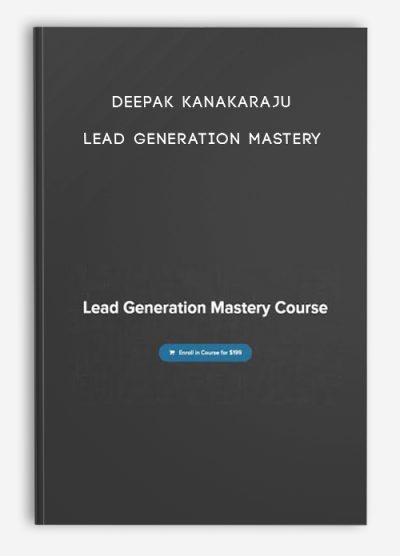




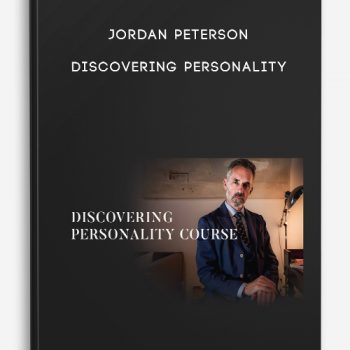


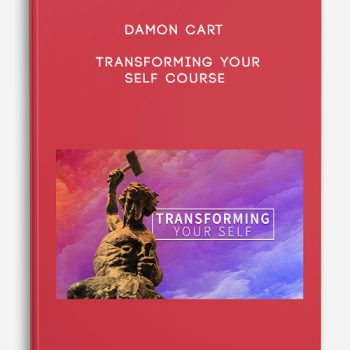
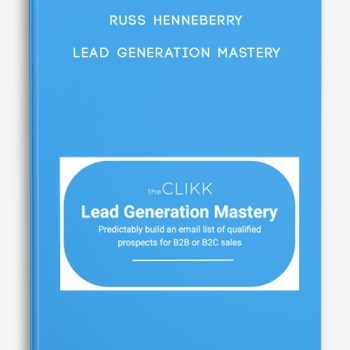

tristian –
This is Digital Download service, the course is available at Vincourse.com and Email download delivery.